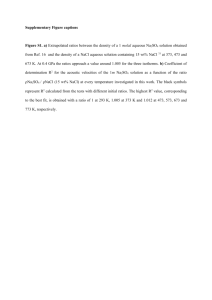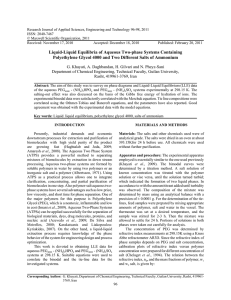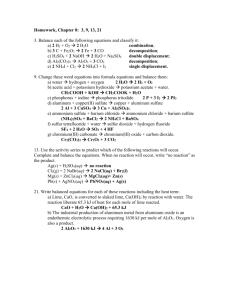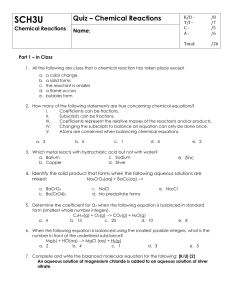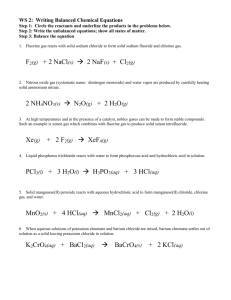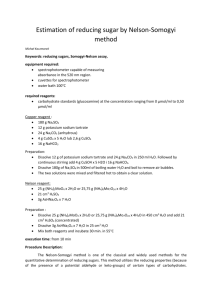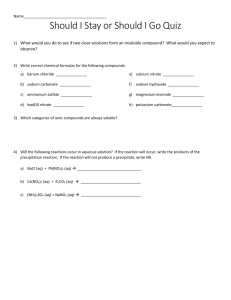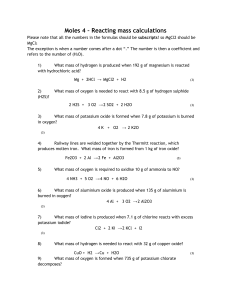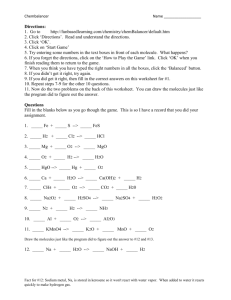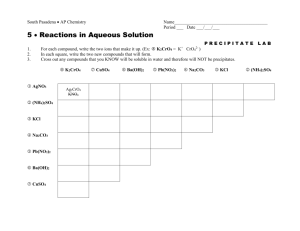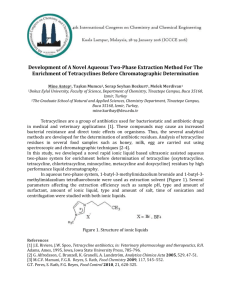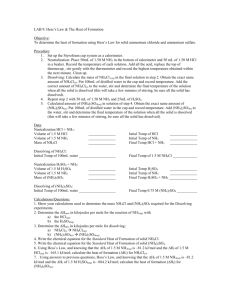P25 - POC`04
advertisement
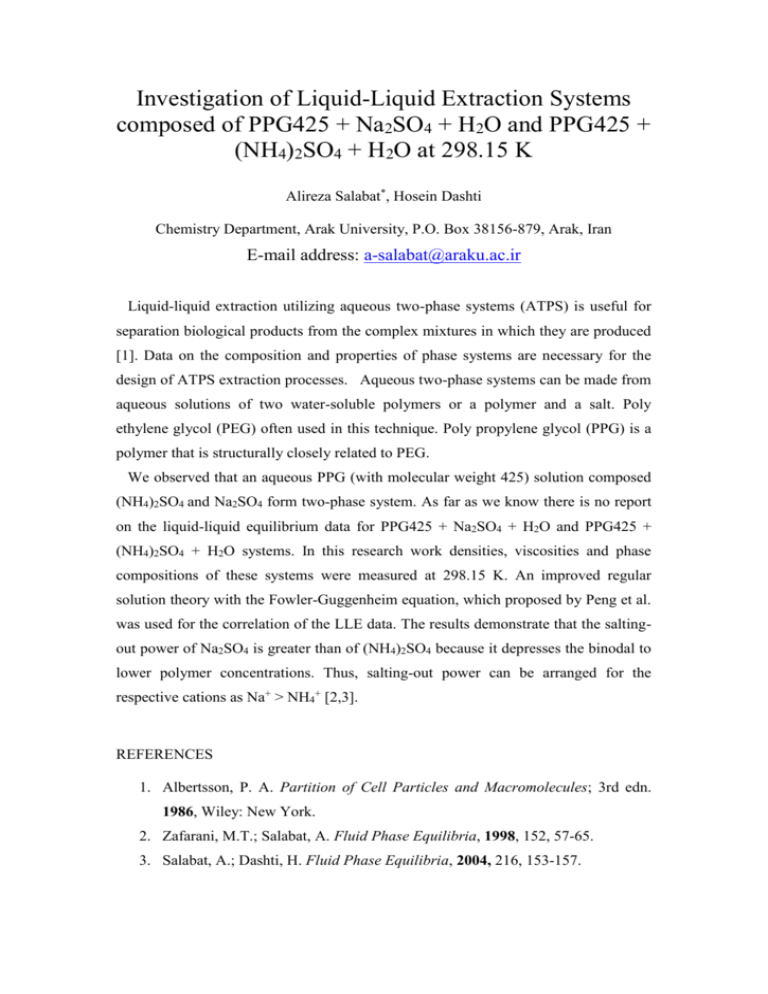
Investigation of Liquid-Liquid Extraction Systems composed of PPG425 + Na2SO4 + H2O and PPG425 + (NH4)2SO4 + H2O at 298.15 K Alireza Salabat*, Hosein Dashti Chemistry Department, Arak University, P.O. Box 38156-879, Arak, Iran E-mail address: a-salabat@araku.ac.ir Liquid-liquid extraction utilizing aqueous two-phase systems (ATPS) is useful for separation biological products from the complex mixtures in which they are produced [1]. Data on the composition and properties of phase systems are necessary for the design of ATPS extraction processes. Aqueous two-phase systems can be made from aqueous solutions of two water-soluble polymers or a polymer and a salt. Poly ethylene glycol (PEG) often used in this technique. Poly propylene glycol (PPG) is a polymer that is structurally closely related to PEG. We observed that an aqueous PPG (with molecular weight 425) solution composed (NH4)2SO4 and Na2SO4 form two-phase system. As far as we know there is no report on the liquid-liquid equilibrium data for PPG425 + Na2SO4 + H2O and PPG425 + (NH4)2SO4 + H2O systems. In this research work densities, viscosities and phase compositions of these systems were measured at 298.15 K. An improved regular solution theory with the Fowler-Guggenheim equation, which proposed by Peng et al. was used for the correlation of the LLE data. The results demonstrate that the saltingout power of Na2SO4 is greater than of (NH4)2SO4 because it depresses the binodal to lower polymer concentrations. Thus, salting-out power can be arranged for the respective cations as Na+ > NH4+ [2,3]. REFERENCES 1. Albertsson, P. A. Partition of Cell Particles and Macromolecules; 3rd edn. 1986, Wiley: New York. 2. Zafarani, M.T.; Salabat, A. Fluid Phase Equilibria, 1998, 152, 57-65. 3. Salabat, A.; Dashti, H. Fluid Phase Equilibria, 2004, 216, 153-157.
